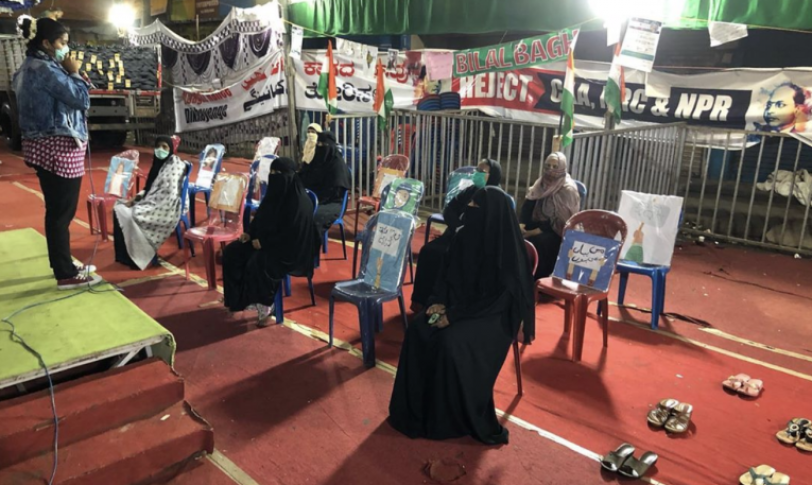
On 16 February 2020, I witnessed my first women-only, 24/7, sit-in protest in my city of Bangalore in India. The protest was named Bilal Bagh, it was around 200 square metres large, and in 46 days it snowballed from a protest to a highly disciplined, fervently patriotic, passionate, transformative, syncretic and firmly non-violent revolution, even as it headed on a collision course with the Indian state and, as the government claimed, the COVID-19 virus.
But first things first. On 11 December 2019, the Indian parliament, dominated by the Hindutva right-wing Bharatiya Janata Party led by Prime Minister Narendra Modi, passed the heavily protested Citizenship Amendment Bill into law. Briefly summarised, the Citizenship Amendment Act (CAA) would grant Indian citizenship to immigrants from certain neighbouring countries who had entered India before 2015 (omitting Sri Lankan Tamils, however) – if they belonged to any religion except Islam. Muslim immigrants, on the other hand, would not be considered for citizenship and would be put in detention camps – concentration camps, in fact. (Some of these Muslim immigrants have probably been living in India for decades.) The law appeared to apply to Muslim immigrants only, which was terrifying enough, but the general lack of documents proving citizenship among the majority of Indian residents – the poor, the caste-oppressed, the indigenous, transgender persons, and older generations, among numerous others – revealed an even more sinister motive: to move Indian Muslims too in large numbers to detention camps, strip them of their rights, label them doubtful citizens, seize their property, separate families, etc. Unsurprising, given the Indian state’s track record with its minority Muslim population, yet a shocking, fresh wave of intensified persecution in a new form.
Apart from the numerous stand-up and marching protests that sprang up in reaction to this new law, some consisting of thousands, a New Delhi neighbourhood, Shaheen Bagh, began a women-only, 24/7, sit-in protest on 14 December 2019 – mainly Muslim women. Their numbers grew exponentially, they invited women of all religions to join them, and soon “Shaheen Bagh” (literally, “falcon garden”) came to signify the protest rather than the neighbourhood. They made protest art, organised speeches and protest activities around the clock, and refused to move until the CAA was repealed. The governmental and right-wing backlash was huge, but initially rhetorical, compared to the police brutality that other protests had faced so far.
Continue reading at GenderIT.org.